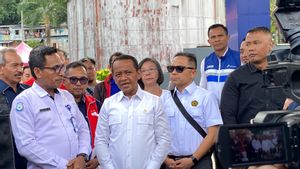In the new era of Prabowo Subianto's government, a breath of fresh air has emerged for the world of Indonesian culture. The Ministry of Culture finally stands alone, separate from the Ministry of Education and Culture. This separation is not only a symbol, but also an affirmation that culture is a strategic asset. Indonesia, with its wealth of art, traditions, and ancestral heritage, has not fully utilized culture as a "soft power" and economic driving force. Currently, amidst the strong flow of global culture, this step is very crucial.
We can learn from South Korea, which has succeeded in bringing K-Pop to the world. As reported by Kompas, K-Pop contributed more than 10 billion US dollars to the South Korean economy in 2020. Hollywood in the United States is also an example of how culture can produce a creative economy of great value. In 2019, the US entertainment industry earned 35 billion dollars, making it one of the main drivers of the country's economy.
Indonesia's potential is no less. We have wayang, batik, literature, theater, traditional dance, and culinary delights such as rendang and fried rice that have been recognized worldwide. If managed well, this culture can become a global commodity. With the establishment of the Ministry of Culture, the opportunity to market Indonesian culture to the world stage is increasingly wide open.
However, the task of the Ministry of Culture is not only to maintain sustainability. In a broader context, this ministry must also be able to bridge the creative economy, especially in the film and music sectors. Currently, Indonesian cinema is showing a revival, with a projection of 60 million viewers in 2024, according to Antara's report. Traditional and modern Indonesian music also holds great potential if promoted properly.
The Ministry of Culture plays a vanguard role in preserving cultural heritage while developing it into a driving force for the creative economy. Countries such as South Korea and the United States have shown how culture can be a significant economic force. Indonesia must be able to take advantage of this momentum.
Many have named Fadli Zon as a strong candidate to lead this ministry. As a figure who has a deep love for culture, Fadli has a long track record in introducing Indonesian art and culture to the international world. His experience in various global forums, as well as managing various cultural institutions such as the Fadli Zon Creative House and the Literature Museum in Padang Panjang, demonstrate his commitment to preserving and promoting cultural heritage.
With the support of President Prabowo Subianto and the right leadership, the Ministry of Culture has a great opportunity to become a catalyst for the development of Indonesian culture. Fadli Zon, with his vision, is considered to be able to bring Indonesian culture to the global stage and make it a pillar of the nation's economy. This is not just talk, because reportedly the government has prepared a large allocation of funds to support this initiative.
The English, Chinese, Japanese, Arabic, and French versions are automatically generated by the AI. So there may still be inaccuracies in translating, please always see Indonesian as our main language. (system supported by DigitalSiber.id)












